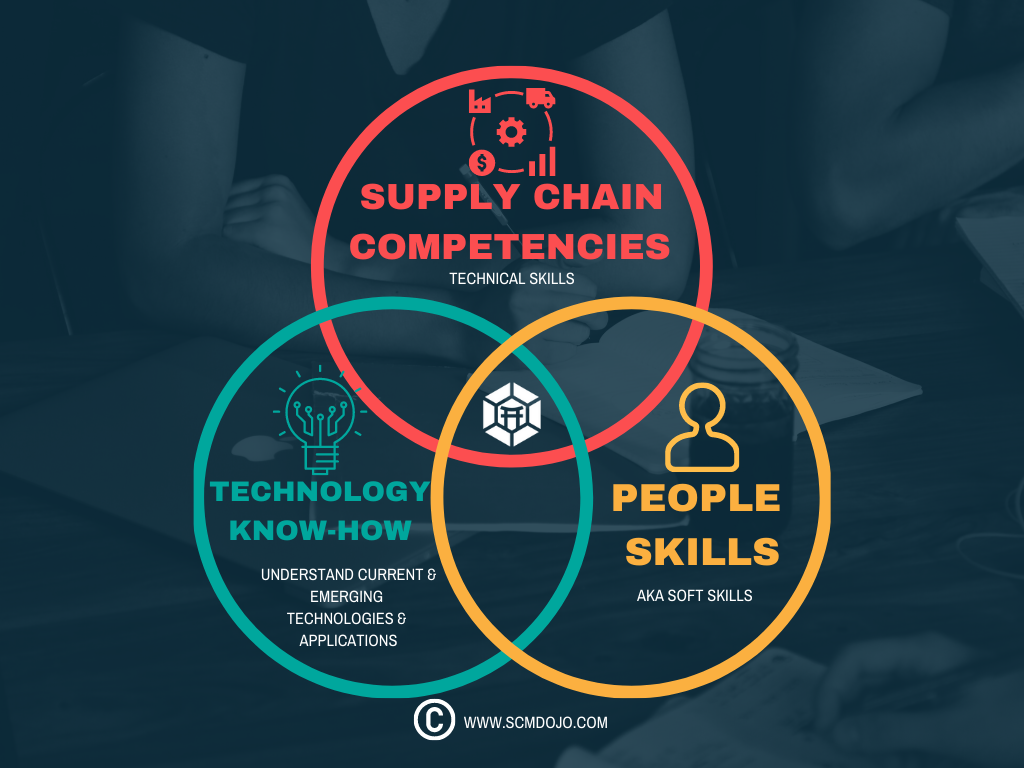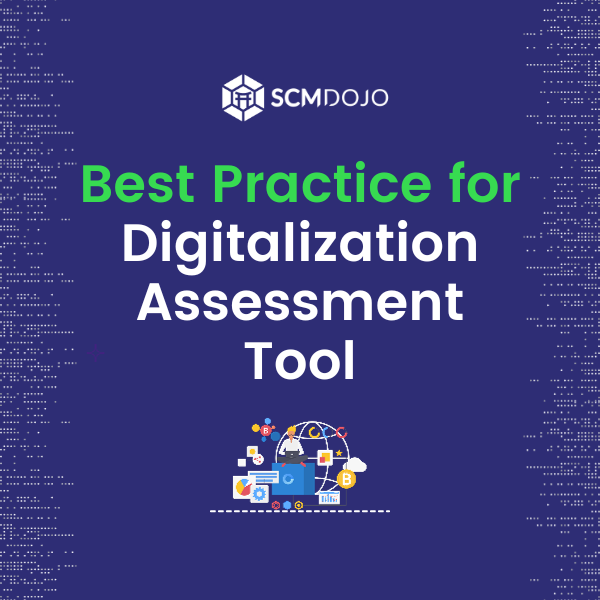In this blog, explore vital tips paving the way for a prosperous career in supply chain management. For recent graduates or career changers, discover insights to build a thriving career in the dynamic field of supply chain.
In a dynamic, fast-paced industry, challenges abound, yet so do rewards, including the potential for a lucrative income. If you’ve thought about switching gears and getting into the supply chain, now is the time to do it. Lucky for you.
SCMDOJO aims to help anyone who wants to start a career in supply chain and wants to grow in this profession. We enable them by providing high-quality supply chain on-demand courses, guides, best practices, tools, and mentoring from industry experts.
We have Courses like S&OP deployment, Supply Chain Digitalization, , and Negotiation in Procurement.
Best Practices like Logistics KPI Dashboard, Inventory Optimization Tool, Excess and Obsolete Inventory Guide, etc.
Practical Guides like Plan for Every Part (PFEP), Demand Forecasting Methods or Stocktaking
We also have comprehensive Supply Chain Diagnostic Tools to identify gaps in competencies and help you build them
Here are 5 things you can do right now to start a supply chain career:
Why Supply Chain is a Great Career Choice?
In the realm of supply chain careers, there appear to be two distinct paths – those who stumble into it by luck and those who consciously choose to educate themselves, often through formal university programs. Regardless of how you find your way, a supply chain career offers unique advantages. Here are some compelling reasons why diving into supply chain management is a fantastic career choice.
Dynamic Nature:
You can seamlessly transition from strategic planning discussions in the morning to tackling operational challenges in just a few hours. Another reason to love a supply chain career is the ever-changing landscape of problems to solve. Each day brings a new challenge, offering continuous opportunities to learn and grow.
Cross-functional Collaboration:
People in Supply chain roles coordinate with people from other departments. As a supply chain professional, engaging with various teams, such as sales, finance, admin, and marketing, provides holistic business insights
Continuous Learning:
Due to its dynamic nature, supply chain problems are ever-changing. This opens doors to learning more about the products, the business, the methods, etc. This field requires continuous learning as there are new emerging problems.
Doors to Diversification:
Supply chain careers offer the unique advantage of facilitating movement into different functions within a business. Professionals in this field often find themselves venturing into manufacturing, IT, technology, ERP systems, and even commercial roles. This flexibility allows for diversification and prevents monotony, making each day on the job a new and exciting experience.
Excitement and Experience:
The reason why supply chain is a great career choice is the sheer enjoyment and excitement it brings. From interacting with diverse teams to solving problems, experienced both small and significant successes. Working collaboratively with large teams adds an extra layer of excitement to the journey. In essence, a supply chain career offers not just a job but a rewarding venture that keeps you engaged and motivated.
Here’s a good start to your journey to learn Supply Chain and adopt the profession. Click here to access the course:
How to Start a Career in Supply Chain Management?
Navigating the Path to a Supply Chain Career
The first crucial step is to decide which aspect of supply chain management aligns with your interests. Whether it’s purchasing, procurement, transport, technology, facilities, or other specialized areas, understanding your passion will influence the subsequent steps in this rewarding career path.
Tailoring Your Journey: Choosing the Right Industry
Supply chain managers play diverse roles, and their duties vary significantly across industries. Before committing to a particular sector, thoroughly research and comprehend the key aspects of supply chain management in various industries. This informed decision will pave the way for a more tailored and fulfilling career trajectory.
Equipping Yourself for Success: Education and Networking
Acquiring a relevant degree is also essential. While traditional degrees like Business Administration or Systems Engineering are valuable, the industry increasingly favors candidates with specific supply chain management degrees. Additionally, early networking on platforms like LinkedIn with professionals, recruiters, and HR personnel in the field can provide invaluable insights. This potentially opens doors to exciting opportunities. Try for entry-level positions or internships in the relevant field to gain more practical experience.
It is the era of digitalization. Here’s an easy way to learn how to apply it to Supply Chain. Access the full course here!
Learn Technical Competencies
In the realm of Supply Chain Management (SCM), technical competencies form the bedrock of effective professional performance. As the global demands on supply chains intensify, SCM professionals must continuously cultivate new skills and refine existing ones. Eight core competencies stand out, encompassing crucial aspects of SCM. These include:
Capacity Planning:
Ensuring timely availability of resources, such as manufacturing capacity and distribution center capacity, to meet logistics and supply chain needs.
Demand Management:
Predicting and managing customer purchases through qualitative and quantitative methods, reducing uncertainty in short-term incoming demand.
Order Processing:
Efficiently handling customer orders, checking order status, and managing processes until invoicing for a positive impact on customer satisfaction.
Master Production Scheduling:
Creating a statement of anticipated manufacturing schedules, evaluating plant capacity, and aligning with strategic business objectives.
Inventory Management & Optimization:
Managing inventory as working capital, focusing on demand planning, optimization, safety stock management, and meeting customer service expectations.
Materials Replenishment Planning:
Guaranteeing material availability through material requirements planning, and optimizing service levels while minimizing costs and capital lockup.
Logistics, Warehousing, and Distribution:
Effectively managing the physical flow of goods, including logistics communication, warehouse and storage management, and distribution processes.
Knowledge of Continuous Improvement Processes or Methods:
Understanding and implementing continuous improvement philosophies. These are lean manufacturing, Six Sigma, Lean Six Sigma, and Agile for enhanced performance and momentum.
Read more on our blog: 8 Must-Have Supply Chain Competencies
Mastering logistics, competencies is challenging due to its wide-ranging applications. As an indispensable function significantly influencing a society’s standard of living, logistics skills are complex but essential. These competencies include:
- Distribution Design, Sourcing, and Management: Mastering best practices for establishing and operating distribution centers, optimizing networks, and ensuring value-added services like kitting and reverse logistics.
- Global Trade Compliance: Understanding the physical movement of goods, navigating import/export responsibilities, and ensuring compliance with international laws and regulations.
- Sourcing and Supplier Selection/Management: Applying knowledge of commercial purchasing practices, including currency fluctuations, duties, quality standards, and cultural differences, to efficiently source goods and manage suppliers.
- Supply Chain Continuity Planning: Systematically and collaboratively improving supply chain strategy, operations, and technology to assess and mitigate risks, ensuring continuity and profitability.
- Transportation Sourcing & Management: Selecting cost-effective transportation modes, evaluating factors influencing transportation sourcing, and maintaining compliance with contracts to ensure efficient logistics.
- Contract Management: Demonstrating expertise in designing and overseeing complex business plans and major purchasing agreements, resolving contractual issues, and adhering to ethical business practices.
They are crucial for navigating the multifaceted challenges of the logistics industry. From optimizing distribution networks to ensuring international trade compliance, these competencies are the building blocks of a successful career in logistics.
Read more on our blog: 6 Must-Have Logistics Competencies and Skills to Master
11 Must-Have People Skills to Start a Career in Supply Chain
Mastering a blend of technical and soft skills is crucial for becoming a top talent. The 11 essential skills for supply chain professionals encompass both realms.
Communication Skills:
Communication skills, often underestimated in the supply chain field, play a pivotal role. The ability to effectively communicate complex information is vital. Presentation skills become a powerful asset, allowing practitioners to convey their insights in a simplified, engaging manner. The emphasis on radical simplicity encourages professionals to articulate their work in a way that resonates with a broader audience, fostering recognition and advancement.
Being Customer-focused:
Being intensely customer-focused is identified as a key skill. Supply chain practitioners are urged to creatively distill details, presenting impactful customer-focused messages. Simultaneously, honing presentation skills is crucial for leadership. The ability to capture an audience’s attention within a short window is considered a leadership quality, essential for effective team management.
Emotional intelligence:
Emotional intelligence emerges as a critical aspect, especially in times of crisis or global challenges. Leaders need to be change catalysts, attuned to the emotional landscape of their teams.
Read more on our blog: 11 Must-Have Supply Chain Skills to Become Top Talents
Change Management Skills:
Change management skills are imperative as businesses operate globally, requiring adept crisis management strategies. Investing in leadership courses to stay abreast of change and crisis management practices is recommended.
Problem-solving:
Problem-solving, facilitated through mentorship and structured mindsets, is identified as a core skill. An international mindset, developed through working in diverse regions, enhances a professional’s standing.
Digital literacy:
Digital literacy, particularly in the evolving landscape of the digital supply chain, is crucial. Understanding and applying technologies like IoT and big data are highlighted as essential components for staying ahead in the field.
In summary, soft skills such as effective communication, emotional intelligence, and problem-solving, along with embracing digital transformation, are pivotal for individuals. So they can emerge as top talents in the dynamic and global supply chain industry.
Learn Digital Skills
In the current landscape of the field, it’s crucial for individuals aspiring to build a successful career to acquire digital skills. The incorporation of technologies like data analytics, artificial intelligence, and the Internet of Things (IoT) has revolutionized traditional supply chain practices. Proficiency in digital skills enables professionals to navigate the complexities of this rapidly evolving industry, improving efficiency, accuracy, and decision-making. From optimizing inventory management to utilizing predictive analytics for demand forecasting, digital skills empower supply chain practitioners to fully utilize technological advancements, resulting in streamlined operations and a competitive edge.
As the industry continues its digital transformation, individuals equipped with these skills are better positioned to adapt to emerging trends. They can also contribute to the innovation and efficiency of supply chain processes. Therefore, for those starting a career in the supply chain, committing to learning and mastering digital skills is a strategic investment for long-term success.
The use of AI has become so common and need of the hour: Read our blogs to learn how different AI tools and platforms can revolutionize the supply chain for you.
Conclusion
The blog has emphasized the pivotal role of supply chain professionals in ensuring the seamless functioning of businesses and highlighted the increasing demand for their expertise. Whether you’re a recent graduate or contemplating a career change, the outlined tips offer a comprehensive guide to starting and thriving in a supply chain management career.
The blog underscores the dynamic nature of the supply chain industry, presenting both challenges and rewards, including the potential for a lucrative income. The diverse and ever-changing landscape of supply chain management is depicted as an adventure filled with continuous learning, problem-solving, and collaboration across various business functions.
Overall, the blog serves as a comprehensive resource for anyone considering or starting a career in supply chain management, offering a roadmap for success in this vital and ever-evolving field.
READ MORE OF OUR BLOGS:
ChatGPT technology is revolutionizing supply chain management and transforming companies’ operations. With its ability to automate tasks, gather data, and optimize processes, it can be a powerful tool for businesses to streamline their supply chains.
Blockchain has evolved as a highly secure and fast way of managing transactions and has proven benefits in almost all fields. In the latest systems, we can see its benefits in full swing.











